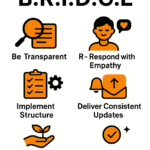A month of protest in Kenya sparked by what the citizenry considered punitive taxes is a testament to the fact that taxes touch almost every aspect of life. Stephen Dean, an American tax law expert, while holding the Faculty Director position at New York University, had this to say about tax law:
“Tax law is all about the people; with tax cases you’ll read about families, people you know, and even people you don’t know. However, when you think about the policy issues that underlie those cases, you’ll be thinking about power, money, and privilege. Moreover, it may get more difficult to draw the line about who should pay, and who shouldn’t pay.”
Based on this reflection, Stephen Dean concludes that anyone wishing to pursue tax law should drop all their misconceptions because: “Tax law offers more intrigue than a show like “The Wire” and more drama than a telenovella.”
Closer home, Daniel Roy Mwamba, an Advocate of the High Court of Kenya and Managing Partner and Tax Lead at MGW Advocates LLP, agrees with Stephen Dean’s perception of tax law as a practice area. Daniel Mwamba has over five years of experience specializing in tax law; he has even litigated tax cases at the East African Court of Justice and the COMESA Court of Justice.
If you missed part one of Unpacking Tax Law, where Mwamba breaks down a day in the life of a tax lawyer, you can read it here. However, today, Daniel Mwamba takes us on the wild ride that is tax law by highlighting the highs and lows of being a tax lawyer. Additionally, he highlights the competencies and attitude necessary to excel as a tax lawyer in Kenya.
The Highs and Lows of Practicing Tax Law
What are some of the highs of being a tax lawyer? Let’s explore Daniel Mwamba’s reflections as a tax lawyer below.
The Highs of Being A Tax Lawyer in Kenya
“As a tax lawyer, I enjoy being right.” Mwamba confirms that getting to tell the tax bureaucracy that they’re wrong comes with an adrenaline rush.
“In tax, you’re either right or wrong. There are no two ways about it.” According to Mwamba, in other practice areas, one wins on the balance of probability. But in tax, you only get what the tax law tells you to get.“
Being right may be overrated in some life scenarios, but it is everything in tax law. Mwamba highlights a recent case in which he beat the Commissioner General in two disputes.
“They were very sure they’d win, especially in the dispute dealing with a tax refund. I had a meeting with almost 12 people from the refunds policy department, and they said, “Mr. Mwamba, you’re wrong, and we’ll beat you at the High Court. I told them, no, we beat you at the tax tribunal, and we’ll beat you in the High Court, and I did. It’s very satisfying to tell 12 people they’re all wrong.”
Besides being right, a second advantage of practicing tax law is that the tax litigation process can be significantly short, unlike other legal matters that could drag on indefinitely. The tax dispute process begins by filing an objection to a tax assessment before KRA within 30 days. Once KRA receives the objection, they must file an objection decision within 60 days, and you can appeal the objection decision at the tax tribunal. Therefore, you can be done with a case within a significantly shorter period.
The Lows
However, the law favors the taxman. Mwamba cites an example from the contentious Finance Bill 2024, which the President of the Republic of Kenya declined to assent to following massive anti-finance bill protests throughout the country. The Bill had an amendment intended to alter the tax dispute process for the taxpayer. The section reduced the duration a taxpayer should file an objection to a tax demand, tax assessment, or any other tax enforcement action from 30 days to seven days. “If the Finance Bill 2024 passes as is, it will limit the taxpayer’s access to tax justice.”
Timelines are strict in tax law because tax statutes are interpreted as they are. Therefore, skewing the timelines against the taxpayer disenfranchises them while limiting the number of tax disputes that make it to the Tax Appeal Tribunals and the courts.
In contrast, KRA does not experience similar restrictions as it retains 60 days to file an objection decision. According to Mwamba, KRA has every advantage, while tax lawyers are always on the margins of legal jurisprudence.
Additionally, Mwamba points out that with pressure for tax revenue, taxing officers make many arbitrary decisions that are neither right nor consistent with the law. “There is jurisprudence featuring a family of cases where KRA has plucked figures out of thin air.”
According to Mwamba, KRA has a history of not wanting to refund Kenyans for overpaid taxes, wrongly remitted taxes, or taxes that ought not to have been paid. Therefore, he posits that reducing the duration of filing an objection is an attempt to reduce the number of cases ending up at the tax tribunal and courts because the taxman knows they’re making many mistakes. Fortunately, now that the President declined to assent to the Finance Bill 2024, the tax laws from the Finance Bill 2023 hold for now.
Third, tax litigation is highly stressful because you constantly deal with extremely stressed executives who transfer the stress to you. Moreover, the stakes are always high in tax law. Therefore, you can experience frequent burnout or a mental breakdown if the pressure gets to you.
Competencies of a Tax Lawyer
According to Mwamba, many lawyers shy away from tax law. He notes that many brilliant lawyers cannot prosecute tax matters because they approach them like normal legal matters. “Many lawyers at the tax tribunal don’t understand tax law concepts, including that while KRA alleges, the burden of proof is with the taxpayer.”
So, what should you know about tax law ro build a stable career as a tax lawyer in Kenya?
-
Self-Confidence
Based on Mwamba’s experience, the first lesson you should learn about tax law is that going into litigation as an underdog against the tax authorities requires significant self-confidence. Self-confidence, or the unwavering attitude about your skills, abilities, and judgments, inspires courage. Like the Biblical David, it takes fierce courage to go up against the tax bureaucracy and prove them wrong, yet they wrote the playbook.
“The only thing our clients come to us for is that we have to be right. I have analyzed the average Kenyan citizen who requests tax services: if they approach you for a solution and you tell them you don’t have an answer, the next time they have a problem they’ll go to whoever you told them has the answer.”
-
Creativity
Creativity may not feature prominently among the core competencies of a lawyer. However, Mwamba highlights that tax lawyers must have very creative legal argumentation. He iterates that the crux of the tax law is in the interpretation. “This is where I think a lot of disputes arise because even the Commissioner General gets the interpretation wrong a lot of times.”
For example, Mwamba cites a refund of the Anti-Adulteration Levy in the Miscellaneous Fees and Levies Act whereby importers of kerosene can get a refund of the levy on the import if the manufacturers of resins, shoe polish, or paint use the kerosene. However, the refund process is in the Excise Act. In the Act, KRA provides an implementation manual that only recognizes importers and (Oil Manufacturing Companies) OMCs but refuses to envisage that anybody else could import kerosene to the country, sell it to people making the highlighted goods and, therefore, be entitled to a refund.
“Between you and the taxman, you must demonstrate very clear and sound legal argumentation. This means sometimes you look at the tax’s effects, its constitutionality, statutory interpretation, and best practices. If nothing else works, look at best practices from cross-jurisdictional applications because the tax laws are constantly changing.”
-
Research-oriented
Daniel iterates that no lawyer can have all the answers because even if the answer was right last year, you might find it’s the wrong answer today. “You can’t be married to legal viewpoints; you must be married to legal argumentations, how you make your argument or demonstrate the error.”
Therefore, Mwamba encourages aspiring tax lawyers to read widely. He especially stresses reading tax decisions as they come out, including those from other jurisdictions. “Download any tax judgement against KRA and read it like a storybook because the same facts can occur.”
-
Intellectual Curiosity
As highlighted above, tax justice requires multiple technical competencies, including litigation, advisory, and ADR skills. Therefore, taking up professional courses along these lines gives you a better shot at tax law.
Additionally, according to Mwamba, tax law is a practice of realism. “We deal in the day-to-day, so any skill you develop gives you a better context. For example, when you talk about tax law, you inevitably talk about business transactions, the people who profit from such transactions, and how they profit.”
Therefore, you must possess a deep and persistent desire to learn, understand, and explore new ideas, concepts, and knowledge beyond surface-level understanding. For instance, having cross-disciplinary insights, e.g., as an accountant, allows you to perform accurate analyses and decipher how KRA will come after your clients because they’re watching. As a tax lawyer, you must always think like the person paying you is thinking.
Mwamba has a diploma in economics, which he says helped him understand how the world works. While he got the diploma before his LLB, he acknowledges it has been instrumental in guiding his decisions. He also recommends enrolling in courses at the Kenya School of Revenue Administration (KeSRA) to fast-track your career as a tax lawyer.
Besides the technical skills, he gives psychological skills as a second example. “Sometimes a taxpayer may come to you scared out of their mind and tell you “Just negotiate for me with KRA, I want to pay.” You need the psychological skills to understand such a client, where they’re coming from and calm them down.”
Bottom Line
People venture into the legal profession for numerous reasons, including pursuing intellectual challenges. If serious brain flexing gives you an adrenaline rush, then tax law will likely make you tick.
Given the current dispensation, tax law will likely get wilder. However, as a tax lawyer, you’ll have a significant role to play in reshaping tax policies in Kenya.












